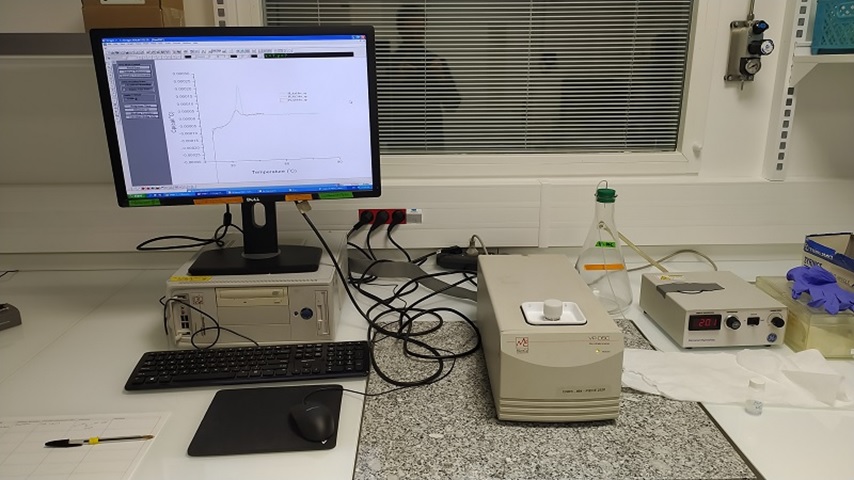Rheology platform
The Institut Galien Paris-Saclay is equipped with a Rheology platform within the Pharmaceutical Physics Team 3 for its own research activities.
The research team regularly collaborates with industrial and academic partners, providing expertise particularly in the study and development of innovative pharmaceutical and cosmetic products. The equipment offered for viscosity measurement complies with the guidelines set by the European Pharmacopoeia.
Our range of instruments includes rotational rheometers, a capillary viscometer, a microfluidic viscometer, a dynamic drop tensiometer, and a texture analyser.
These measurement devices enable comprehensive rheological and textural characterisation of products, assessing both their bulk properties and interfacial behaviours.
Physical measurements department
As part of team 1-2 Multiphase and team 4 Improving the passage of biologically active molecules through barriers, the platform can be used to characterise molecular systems (monolayer, self-assembly, etc.) from a thermodynamic point of view and to measure variables such as surface pressure, enthalpy, free enthalpy, entropy, etc.
DSC
Principle of the Technique:
Differential Scanning Calorimetry (DSC) is an instrument that measures heat transfers of a compound (e.g., powder, molecules in solution, molecular self-assemblies in suspension) over a defined temperature range relative to a reference (e.g., dilution medium).
It enables determination of phase transitions of these molecules or molecular assemblies.
Thus, this instrument can characterise a lipid membrane whose “thermal signature” might be affected by the presence of another molecule.
Experimental Conditions:
VP-DSC
-
Minimum sample volume: 1 ml
-
Measurable temperature range: 1 °C – 100 °C
-
Maximum heating rate: 1.5 °C/min

ITC
Principle of the Technique:
Isothermal Titration Calorimetry (ITC) is a technique used to determine thermodynamic parameters of interactions in solution (enthalpy ∆H, entropy ∆S, reaction stoichiometry n). It allows the study of interaction phenomena between small molecules (e.g., lipids) or large molecules (proteins, DNA, etc.).
The instrument consists of two cells within an adiabatic chamber. The solution containing the molecules under study is placed in the sample cell, while the reference cell contains the buffer in which the molecules are solubilised.
It also includes a syringe that injects constant volumes of the titrant solution.
The measurement is performed at constant temperature, and the instrument records, at each injection, the heat it must supply or absorb from the sample cell to maintain this constant temperature.
Experimental Conditions:
-
Minimum sample volume: 2 ml x 2
-
Minimum ligand volume: 300 µl x 2

Prototype and instrumentation service
The aim of this department is to meet the needs of researchers in the fields of instrumentation for their research projects, in particular:
– Design and production of all or part of equipment dedicated to research.
– Development of specific instrumentation and control systems.
– Instrument control.
– Maintenance and upgrading of the X-ray platform [eq. 1-2] and other instruments dedicated to research.
Machined materials: aluminium, stainless steel, brass, Plexiglas, Teflon, etc.
Mechanical manufacturing resources
Design on AUTOCAD
Photo
Production on machine tools
Photo






